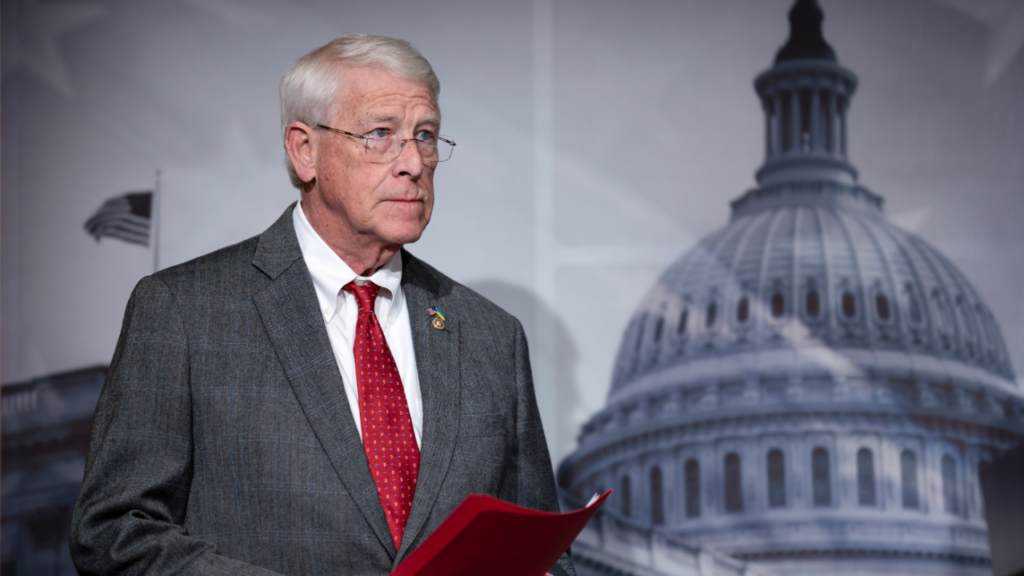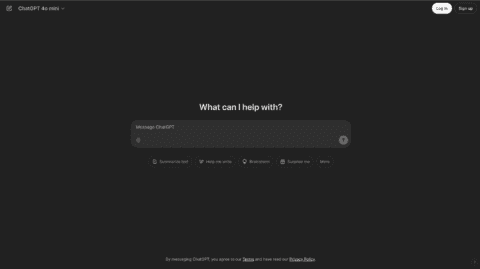In recent months, few topics have ignited as much debate in Washington as the fate of the U.S. Agency for International Development (USAID). Once heralded as a cornerstone of American soft power and humanitarian outreach, USAID now finds itself in the eye of a storm—a storm fueled by a series of drastic policy changes, controversial decisions, and fierce political debate. Whether you’re asking, “What is USAID?” or wondering “What does USAID do?” this blog will take you on a deep dive into its history, mission, and the recent challenges that have reshaped its future.
USAID: Definition and Historical Background
USAID—the U.S. Agency for International Development—is an independent agency of the U.S. government founded in 1961 by President John F. Kennedy. Its creation was part of a bold effort to consolidate U.S. foreign assistance programs into one cohesive agency to better counter Soviet influence during the Cold War. Over the decades, USAID has evolved into the world’s largest bilateral donor for civilian foreign aid, helping to fund projects that promote development, humanitarian relief, and democratic governance across more than 100 countries.
USAID’s founding was rooted in the idea of “Point Four” programs—a legacy of post-World War II reconstruction efforts—that aimed to lift low-income nations out of poverty and build the capacity for self-sustaining development. Today, USAID stands as a key instrument of U.S. foreign policy, delivering assistance not only to stabilize conflict zones and aid disaster recovery but also to advance American interests abroad.
For a detailed historical overview, see Reuters’ explanation of USAID’s origins and role
and Wikipedia’s summary
.
The Mission of USAID: What Does It Do?
At its core, USAID is tasked with promoting economic development, reducing poverty, and providing humanitarian relief worldwide. Its programs cover a wide range of activities:
- Disaster Relief and Humanitarian Assistance: Responding to crises—be they natural disasters or conflicts—by providing food, shelter, and medical care.
- Economic Development: Supporting infrastructure projects, agricultural advancements, and market development to foster sustainable growth.
- Health Programs: Tackling global health challenges from HIV/AIDS and malaria to maternal and child health issues.
- Promoting Democracy and Governance: Helping build stronger democratic institutions and fostering human rights in emerging democracies.
- Environmental and Climate Initiatives: Supporting projects that reduce greenhouse gas emissions, improve sustainability, and help communities adapt to climate change.
USAID’s work is not only about direct financial support but also about capacity building—training local professionals, strengthening institutions, and fostering partnerships that empower communities to manage their own development in the long run.
For further details on USAID’s operations and its role in global development, check the comprehensive insights provided by USAID’s own “Primer”
and by Reuters
.
USAID’s Budget and Global Funding
USAID is supported by an annual budget that, in fiscal year 2023, exceeded $50 billion. This funding makes up more than half of all U.S. foreign assistance—a significant allocation that underscores the importance the U.S. places on its global aid mission. The agency’s funds are used to implement programs in over 130 countries, targeting areas such as health, agriculture, education, and governance.
While the budget represents a small percentage of the overall federal spending, its impact is global. USAID’s investments have enabled countless projects—from building wells in arid regions to supporting critical health services in conflict zones. However, changes in the political landscape have brought the agency’s budget and spending priorities under increased scrutiny.
The Congressional Research Service and various news outlets, including Reuters
and the BBC
, have noted that USAID’s funding is vital to maintaining U.S. influence and promoting development abroad.
Recent Controversies: Shutting Down USAID?
In early 2025, USAID became the focal point of a dramatic political battle. The second Trump administration, with influential figures such as Elon Musk at the helm of efforts to reduce government spending, launched an unprecedented move to “shut down” the agency. This initiative involved freezing nearly all foreign aid, laying off thousands of USAID employees, and even taking down the agency’s official website—an action that has raised alarms across the international community.
Critics argue that these measures are not merely bureaucratic reorganization but resemble a coup against one of America’s most critical instruments of soft power. The move is seen by many as an attempt to realign foreign aid with a narrow “America First” agenda, potentially jeopardizing the U.S.’s ability to respond to humanitarian crises and maintain global partnerships.
Elon Musk was among the most vocal proponents of dismantling USAID, claiming that the agency was a “criminal organization” and describing it as “a ball of worms” that could not be reformed. President Trump and his allies have argued that USAID’s work has often been out of step with U.S. national interests, asserting that every dollar spent abroad must directly benefit the American people.
For a closer look at these developments, refer to the Wall Street Journal’s coverage
and Politico’s report on the catastrophic layoffs
. Additionally, The Guardian offers insight into the internal chaos and management controversies
.
Political Reactions: Voices from Ilhan Omar to Don Beyer
The sweeping changes to USAID have sparked a fierce political debate in Washington. Across the aisle, several lawmakers and public figures have weighed in on the potential fallout from dismantling a decades-old institution.
Ilhan Omar’s Perspective
Representative Ilhan Omar has been one of the most outspoken critics of the new direction taken by the Trump administration. Omar argues that shutting down USAID not only undermines global humanitarian efforts but also damages America’s reputation as a leader in promoting democracy and human rights. She has warned that these drastic cuts could create a vacuum in international aid, ultimately emboldening adversaries and weakening the U.S. global standing.
Her concerns echo the broader criticism that reducing foreign aid risks triggering humanitarian disasters in regions already in crisis. While specific quotes from Omar have circulated widely on social media, her overall message has been one of caution: that U.S. aid programs are not charity but a strategic investment in global stability.
Senator John Kennedy and Don Beyer: Contrasting Views
Senator John Kennedy has also entered the fray, raising questions about the political motivations behind the aid freeze. Kennedy has suggested that the move could be seen as part of a broader strategy to concentrate power and reduce accountability within U.S. foreign policy apparatuses. He has called for a thorough review of USAID’s operations and funding priorities to ensure that American taxpayer dollars are spent in ways that truly serve U.S. interests.
On the other hand, Congressman Don Beyer has expressed concern that dismantling USAID will have long-term negative effects on U.S. diplomacy and global engagement. Beyer argues that the agency’s programs—ranging from disaster relief to health initiatives—are crucial for maintaining America’s influence abroad. He fears that rolling back such programs could weaken the U.S.’s ability to respond to global crises and ultimately hurt both international stability and American security.
Though the specific statements from Kennedy and Beyer are part of a broader ongoing debate, their perspectives highlight the deep partisan divide over the role of foreign aid in U.S. policy. These discussions are featured in several recent analyses and opinion pieces, as noted in Reuters and The Guardian
,
.
The “Coup” Narrative and Current Events
The term “coup” has been used by some critics to describe the Trump administration’s radical overhaul of USAID. This language reflects the belief that the actions taken are not merely administrative changes but a fundamental shift in how the U.S. engages with the world. Proponents of the changes argue that the freeze on foreign aid and the subsequent restructuring are necessary to ensure that every dollar spent abroad directly advances U.S. national security and economic interests. Detractors, however, see this as a dangerous centralization of power—one that sidelines the expertise of seasoned humanitarian professionals and disrupts the long-established networks that provide critical support to vulnerable populations.
This narrative has been further amplified by dramatic images and reports of USAID’s headquarters in Washington being shuttered and its digital presence—including the website USAID.gov—being taken offline. The shutdown of the website has not only disrupted information flow but has also become a symbol of the broader dismantling effort. Such measures have raised serious concerns among international development organizations and NGOs, who warn that the current policies could precipitate a humanitarian crisis on a global scale.
For a vivid account of these events, see the HuffPost report in Spanish
, which documents protests outside USAID’s headquarters and the chaos unleashed by the abrupt policy shift.
USAID’s Digital Footprint: Website Down and What It Means
One of the most striking signs of the current upheaval is the disappearance of the USAID website. Traditionally a key resource for journalists, policymakers, and international partners, the website has been the online face of America’s development and humanitarian aid efforts for decades. Its removal has left many stakeholders scrambling for information and has become emblematic of the broader disruption affecting the agency.
The official shutdown of USAID.gov was accompanied by a flurry of announcements from government officials—including Secretary of State Marco Rubio, who declared himself the acting head of USAID as part of a plan to merge the agency with the State Department. Critics argue that this move not only undermines the transparency and accountability that USAID has strived to maintain over the years but also signals a potential loss of institutional knowledge that could cripple U.S. international aid programs for years to come.
The Reuters report on these developments
and CBS News’ coverage of the shutdown
offer detailed insights into the technical and operational implications of this digital blackout.
Looking Ahead: The Future of USAID and U.S. Foreign Aid
As the debate over USAID rages on, the long-term implications of these policy shifts remain uncertain. Will the merger of USAID into the State Department streamline U.S. foreign aid and make it more aligned with national interests—or will it decimate an agency that has been instrumental in promoting global stability and humanitarian relief for over six decades?
Critics warn that the current approach could have catastrophic consequences for vulnerable populations around the world. Humanitarian organizations, including Médicos Sin Fronteras, have already voiced their alarm, warning that the cessation of funding and the dismantling of USAID’s infrastructure could lead to a “disaster humanitarian” affecting millions. Conversely, supporters argue that reform is necessary to eliminate inefficiencies and ensure that U.S. aid dollars are used effectively.
The political battle over USAID is also likely to intensify in Congress, where lawmakers on both sides are debating the merits of foreign aid in an era of increasing global instability and shifting geopolitical priorities. The comments from figures like Ilhan Omar, Senator John Kennedy, and Don Beyer suggest that the coming months will be critical in determining the future trajectory of U.S. foreign assistance.
Interactive Reflections and Community Engagement
We’d love to hear your thoughts on this critical issue. Consider the following questions:
- What is your understanding of USAID’s role in global development?
- Do you believe that the recent policy changes constitute a “coup” against humanitarian aid? Why or why not?
- How might the shutdown of USAID’s website affect transparency and accountability in U.S. foreign aid?
- In your view, what should be the guiding principles for U.S. foreign aid spending—national security, global humanitarianism, or a balanced approach?
Join the conversation on social media using hashtags such as #USAIDFuture, #ForeignAidDebate, and #AmericaFirstAid. Share your opinions and engage with experts and fellow readers to help shape a broader discussion about the future of U.S. international aid.
Conclusion: Navigating a Changing Landscape
USAID has long stood as a symbol of America’s commitment to global development and humanitarian relief. From its origins in the Cold War to its current role as a pivotal agency in international aid, USAID’s impact has been profound. However, as the U.S. faces new political and economic challenges, the future of this venerable institution is more uncertain than ever.
The actions taken by the Trump administration—and the accompanying criticisms by political figures such as Ilhan Omar, Senator John Kennedy, and Don Beyer—underscore a deep ideological divide over the role of foreign aid in U.S. policy. Whether viewed as a necessary realignment of resources to safeguard American interests or as a reckless dismantling of a crucial global assistance mechanism, the debate over USAID is emblematic of broader tensions in U.S. foreign policy today.
As the current events continue to unfold—with USAID’s website offline and its offices shuttered—stakeholders both in Washington and around the world are left to wonder: what will replace USAID’s decades-long legacy of humanitarian engagement? Will the U.S. be able to maintain its leadership in global development, or will these radical changes trigger a crisis in international aid that affects millions?
One thing is clear: the decisions made in the coming months will have lasting implications not only for U.S. foreign policy but also for the countless lives that depend on the support provided by USAID’s programs. As we navigate this uncertain terrain, it is essential to remain engaged, informed, and active in the debate about the role of foreign aid in shaping a safer, stronger, and more prosperous world.





